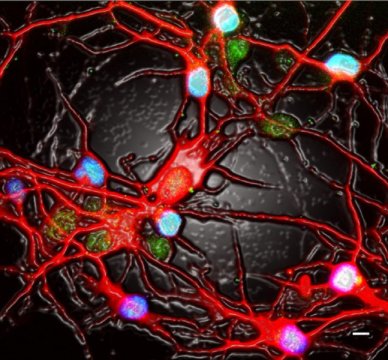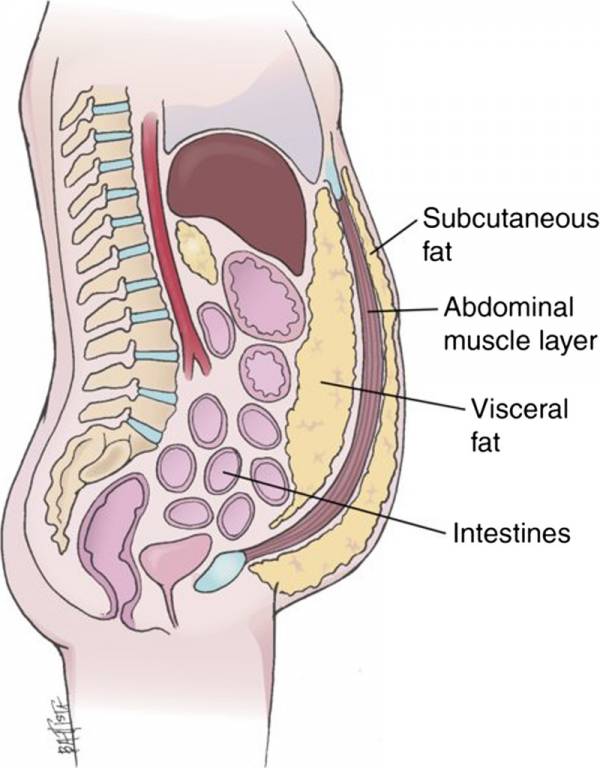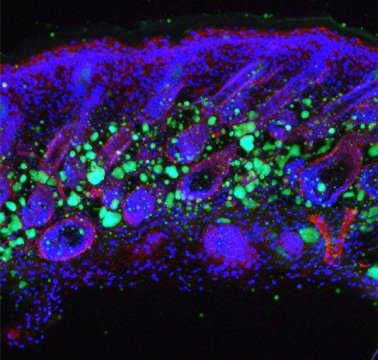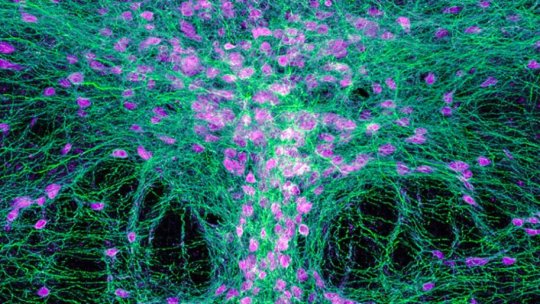When neurons get the blues. This artistic image shows neurons derived from pluripotent stem cells of antidepressant (SSRI) resistant depressed patients. SSRI-resistant patient neurons display hyperactivity in response to serotonin. The study reveals potential mechanism associated with SSRI-resistance in major depressive disorder (MDD). The most commonly prescribed antidepressants, selective serotonin reuptake inhibitors (SSRIs), lift the fog of depression for many people. But for around a third of people with major depressive disorder, SSRIs don’t make much of a difference. Now, researchers from the Salk Institute have pinned down a possible…
Read MoreCategory: Health
The dangers of hidden fat: Exercise is your best defense against deep abdominal fat
Scientists know that the type of fat you can measure with a tape isn’t the most dangerous. But what is the most effective way to fight internal, visceral fat that you cannot see or feel? The answer: exercise. Researchers at UT Southwestern Medical Center analyzed two types of interventions — lifestyle modification (exercise) and pharmacological (medicine) — to learn how best to defeat fat lying deep in the belly. The study is published in Mayo Clinic Proceedings. “Visceral fat can affect local organs or the entire body system. Systemically it can…
Read MoreHow skin ages, loses fat and immunity
This is a microscopic image of the skin reveals skin cells in blue and fat cells in green. The fat cell layer forms the final barrier against bacteria entering deep into the body. Dermal fibroblasts are specialized cells deep in the skin that generate connective tissue and help the skin recover from injury. Some fibroblasts have the ability to convert into fat cells that reside under the dermis, giving the skin a plump, youthful look and producing a peptide that plays a critical role in fighting infections. In a study…
Read MoreFight or flight: Serotonin neurons prompt brain to make the right call
Serotonin neurons as seen from under a confocal laser scanning microscope, photographed by doctoral candidate Changwoo Seo and laboratory technician Andrew Recknagel. Known for its role in relieving depression, the neurochemical serotonin may also help the brain execute instantaneous, appropriate behaviors in emergency situations, according to a new Cornell study published Feb. 1 in Science. The researchers studied brain activity patterns in mice. If a mouse was experiencing a threat, dorsal raphe serotonin neurons would fire during movements. But, when there was a calm, positive environment, these serotonin neurons would fire…
Read MoreExercise may improve thinking skills in people as young as 20
Regular aerobic exercise such as walking, cycling or climbing stairs may improve thinking skills not only in older people but in young people as well, according to a study published in the January 30, 2019, online issue of Neurology®, the medical journal of the American Academy of Neurology. The study also found that the positive effect of exercise on thinking skills may increase as people age. The specific set of thinking skills that improved with exercise is called executive function. Executive function is a person’s ability to regulate their own behavior,…
Read More




